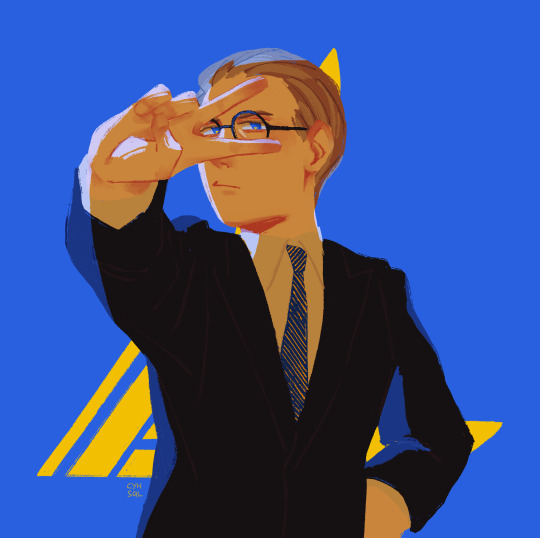#functionalism
Photo

Sander Petelski
#modernism#modernarchitecture#facadelovers#bauhaus#internationalstyle#functionalism#geometricart#contemporaryart#architecture#vintage#architecturemodel#elevations#digitalart#midcenturymodern#dutchdesign#midcenturydesign#summer#conceptart#collage#artprint#posterdesign#architecturelovers#archilovers#shapeandpattern#contemporarycollage#newart"
329 notes
·
View notes
Text

Hotel Thermal, Karlovy Vary, 1976. From the Budapest Municipal Photography Company archive.
65 notes
·
View notes
Text

Albert Kahn, Ford Factory in Dearborn, Michigan.
Photo made by Isa or Walter Gropius
Via: Pinterest
#albert kahn#ford#henri ford#utilitarianarchitecture#architecture#modernist architecture#factory#gropius#bauhaus#modernism#functionalism
183 notes
·
View notes
Photo

Karl Friedrich Schinkel, Tent Room | Schloss Charlottenhof, Potsdam, Germany, 1882-1890
VS
Arne Jacobsen, Bellevue Teatret, Copenhagen, Denmark, 1936
#Karl Friedrich Schinkel#Tent Room#Schloss Charlottenhof#Potsdam#Sanssouci#Frederick the Great#germany#architecture#arne jacobsen#Bellevue Teatret#Copenhagen#Denmark#Functionalism#danish architecture#modernism#modernist
31 notes
·
View notes
Text
The more I think about canon tfp Megatron, which I believe this fic's version of tfp and its inhabitants are pretty fucking close to canon and tfp Soundwave is going to remain as such for a while, the more I see he has a very strict system that's exactly influenced by pre-war Cybertron, his time in the pits, and his own idiosyncrasies. Yes I find his design fairly attractive, and highly enjoy specific fanon depictions, but I agree that in canon the way he set up the Decepticon hierarchy is maladaptive and dysfunctional. In canon he certainly has a "Life is a performance, I am the main character, and things will go my way regardless of everything" attitude, if that's the right way to explain it? It's a manipulative rhythm.
It reminds me a lot of Functionalism. Not as in the in universe terms of functionist where in there's a taxonomical ranking with some being elevated over others, such as in idwg1, but the sociology term. He's boiled everyone on his ship down to a role based on usefulness for his goals. Yes, Starscream is clearly a bit of a wildcard in his rhythm, but from what I can see in canon he's 100% the scapegoat in most continuities (even to some of the show writers, i theorize?) He's the guy who's the example to the rest of what happens to the disobedient.
This is purely based on my observations of canon tfp and canon tfp alone, temporarily ignoring the rest of aligned.
Tl;dr, canon tfp Megatron is easily one of the more obsessive versions, but he's also surprisingly deliberate in everything he says and does. Comparing it to roles/parts in a play is actually a fairly apt analogy. And in this fic we see its effects heavily on tfp Soundwave.
#Functionalism#sociology#kinda#tfp megatron#tfp Soundwave#tfp Starscream#basically what I'm saying is he places mecha in the hierarchy based moreso on skill and behavior rather than petty things like frametype#this is about entirely strictly canon tfp abd not fanon at all#in fanon everything is possible like mpreg#i love fanon tfp megatron so damn much but it's not a mutually exclusive idea to criticize canon Megatron as a person#and i feel like it honestly makes him a more competent Megatron#key work: more. ultimately speaking his obsessive nature and attitude to everyone is what fucks him over in canon#after all true loyalty is inherently intertwined with trust#it's another reason why i love analyzing the minute differences between the Megatrons#riot rambles#i hope i was relatively clear on what i mean?#sorry if i wasn't#fic reading as ya do#transformers prime
24 notes
·
View notes
Text


Acceptera! ✌️
Instagram // Twitter // Cara // 🔗
#artists on tumblr#illustration#sigurd lewerentz#gunnar asplund#erik gunnar asplund#stockholm exhibition#stockholm exhibition 1930#stockholmsutställningen#stockholmsutställningen 1930#architecture#modernism#modernist#functionalism#modernist design#graphic design#procreate#character illustration#cyhsal
5 notes
·
View notes
Text
Theories of the Philosophy of Hierarchy
The philosophy of hierarchy examines the nature, justification, and implications of hierarchical structures within societies, organizations, and systems. It explores questions related to power dynamics, authority, and social order. Additionally, it delves into ethical considerations regarding the legitimacy and fairness of hierarchies and investigates alternative models of social organization.
Some theories in the philosophy of hierarchy include:
Social contract theory: This theory explores the idea that hierarchical structures are formed through implicit or explicit agreements among individuals for mutual benefit and social order.
Power and domination theory: This perspective emphasizes the role of power dynamics in the establishment and maintenance of hierarchical structures. It examines how individuals or groups use power to exert control over others within a hierarchy.
Functionalism: Functionalism argues that hierarchical structures serve essential functions in society by organizing individuals and facilitating cooperation and productivity. It views hierarchies as necessary for social stability and efficiency.
Conflict theory: Conflict theory posits that hierarchical structures are based on inherent conflicts of interest between different social groups. It highlights how hierarchies can perpetuate inequality and social injustice.
Anarchism: Anarchist theories challenge the legitimacy of hierarchical structures and advocate for decentralized, non-hierarchical forms of social organization. They prioritize individual autonomy and voluntary cooperation over institutionalized authority.
Feminist theory: Feminist perspectives on hierarchy examine how gender dynamics intersect with hierarchical structures to perpetuate gender inequality and oppression. They critique traditional hierarchical models and advocate for more equitable and inclusive forms of organization.
These are just a few examples of theories within the philosophy of hierarchy, each offering distinct insights into the nature and implications of hierarchical systems in society.
#philosophy#epistemology#knowledge#learning#chatgpt#education#ethics#sociology#society#Philosophy of hierarchy#Social contract theory#Power dynamics#Functionalism#Conflict theory#Anarchism#Feminist theory#Social organization#Social structure#Inequality
4 notes
·
View notes
Photo

Restoration of Asplund’s Gothenburg City Hall
8 notes
·
View notes
Text
Universal Grammar couldn't evolve
We know that human beings evolved from ancestors without language. This means our language faculty must have evolved and it must therefore be capable of evolving. The innate grammar module the generativists propose is not "evolvable" and poses other problems besides, and cannot therefore be part of our language faculty.
On the other hand, there probably are language instincts linked to babbling, selective hearing and the learning of words. Language is also based on a range of social instincts, but these are not language-specific.
~ Sverker Johansson, The dawn of language, p. 197
#linguistics#language#evolution#grammar#cognition#generativism#functionalism#science#generative grammar#Universal Grammar#science communication#UG
25 notes
·
View notes
Photo

https://www.the-raum-objects.com/
#The Raum Objects#functionalism#minimalism#modernism#objects#designed in Hamburg#Collection#design#typography#type#typeface#font#Matter#2023#Week 11#website#web design#inspire#inspiration#happywebdesign
6 notes
·
View notes
Text
Functionalism: Specialist Skills
Durkheim argues that schools teach children the skills they need to be able to perform their role in the workplace. For example, workers have to be able to read and write, but also have skills such as leadership and problem solving. School teaches students these skills.
Criticisms:
Postmodernists argue against this view saying that it is outdated. This is because Postmodernists believe that the education system is now flexible and can be accessed throughout life.
#sociology#alevels#alevelsociology#revision#sociologyrevision#functionalism#specialistskills#education#durkheim#postmodernism
11 notes
·
View notes
Photo

Imre Platschek building on the Corner of Maros street and Szamos street, Budapest, 1960. From the Budapest Municipal Photography Company archive.
94 notes
·
View notes
Text




Personal Collection #1
Dieter Rams, The Complete Works
Klaus Klemp, with a foreword by Dieter Rams
9 notes
·
View notes
Text
They have stolen the heart from inside you...
But this does not define you...
2 notes
·
View notes
Text

let’s run into the wild
#alt aesthetic#grunge#2014 tumblr#alternative#dark aesthetic#slavic#soviet#functionalism#alt moodboard
3 notes
·
View notes
Text
I thought of this and I have an urge to share it.
You know how in some Transformers continuities (like Prime), there’s a thing called “functionalism” (basically dictates what job you do based on your alt-mode) and in My Hero Academia, there’s “quirkism” (biases against certain quirks)? What if they were combined?
Say the type of quirk you have dictates the jobs your able to get. Healing quirks get pushed to be nurses/doctors/healers, music or sound quirks get pushed to be music makers or sound-based jobs, super strength quirks get pushed to bodyguards or maybe even a crude form of gladiators, tech-based quirks get pushed to be inventors, speed quirks towards delivery services or racers, animal-based quirks towards animal shelters/hunters, maybe elemental-based quirks towards weather control or natural disaster prevention, quirks that alter the ground in some way towards construction or mining, there’s so many ways to go with this. Those are just examples I could think of on the top of my head. This probably means hero culture doesn’t pop up, but maybe there could be a strange imitation of it? Like, if there is a go through with the gladiator thing and there’s a really popular one, maybe there would be some way to let said gladiator be out on the streets and protect people against criminals? Of course, this will no doubt lead to a revolution, because we saw what happened with functionalism, but this easily changes everything about MHA if it had a form of functionalism. OH, what if in the society with functionalism applied to quirkism, quirkless people are seen as people who have no restraints on what they could do?
Oh, um as for quirkism if it applies to functionalism, I don’t think it would change very much? Sure, some continuities have the concept of “Outliers”, which are basically quirks but for giant alien robots, but I still don’t see anything changing very much. If I remember correctly, in TFP, the council hated seekers/fliers and how they didn’t fit into functionalism, but if quirkism was applied to that, all that would be added is more insults. Like, it doesn’t change. I don’t see how that changes at all
Anyways, sorry for rambling, this randomly came to mind and I wanted to share it. Take it as a potential prompt idea if you want, I’m just releasing it out into the world.
#transformers#transformers prime#TFP#my hero acedamia#mha#functionalism#quirkism#mha quirks#random idea#have fun with it#I probably won’t touch it very much#prompt idea#maybe?#not sure tagging as that anyways
5 notes
·
View notes